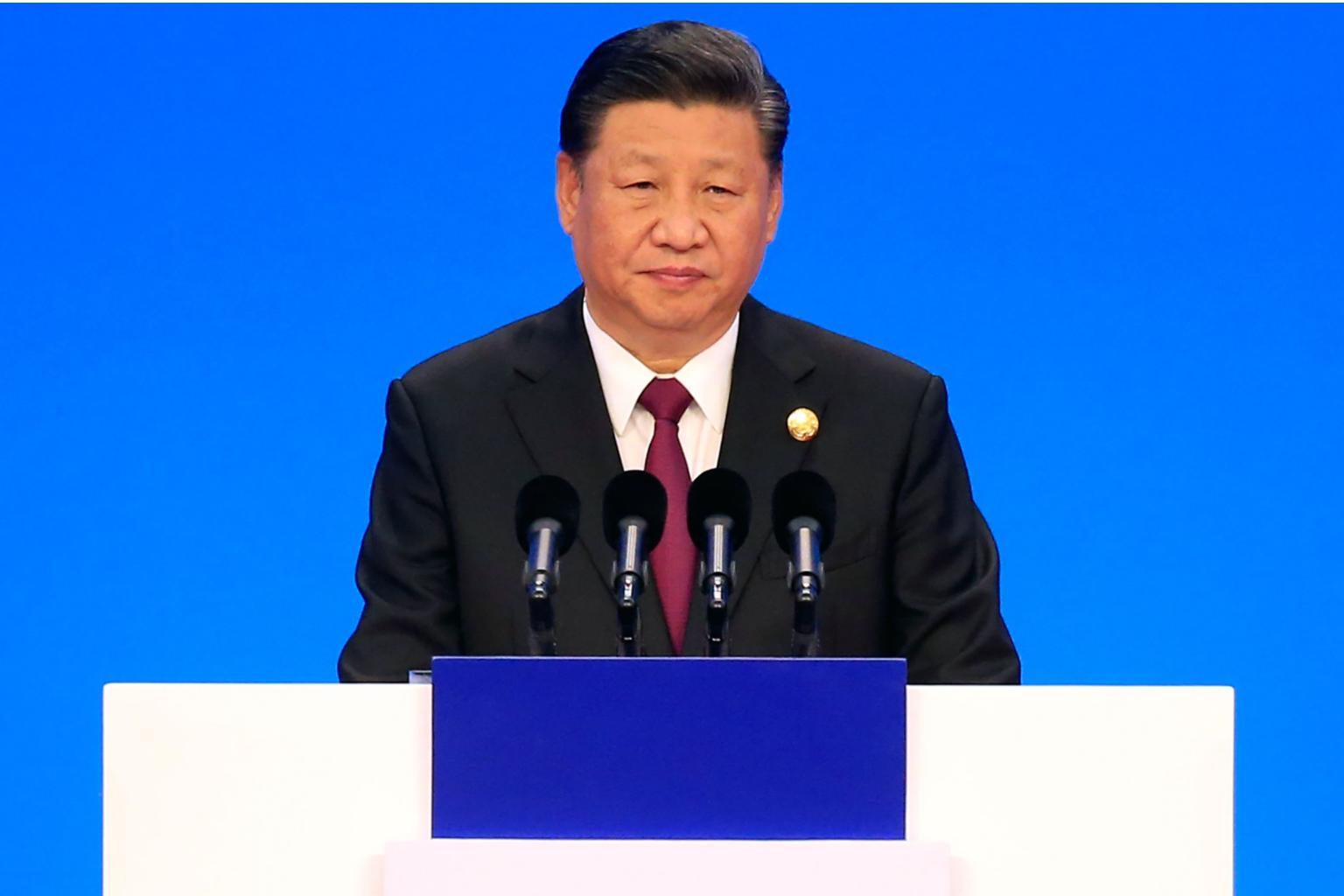Editorial Notes
Thailand will pay a price for over-reliance on China: The Nation
In its editorial, the paper says Beijing's Belt and Road funding comes with punishing debts and Thailand should be cautious as it signs agreements.
Sign up now: Get ST's newsletters delivered to your inbox

In 2013, Chinese President Xi Jinping said that China and Central Asia should join to build a new Silk Road. Later, he also proposed a 21st-century Maritime Silk Road that would link China and Asean.
PHOTO: AFP
Follow topic:
BANGKOK (THE NATION/ASIA NEWS NETWORK) - As China celebrates the 5th anniversary of its Belt and Road Initiative (BRI) this year, countries seeking to profit from the scheme should now be asking whether it is in fact in their long-term interest.
In September 2013, President Xi Jinping said during his visit to Kazakhstan that China and Central Asia should join to build a new Silk Road, resurrecting the ancient trade route from China to Europe.
But this was no coy suggestion.
Xi had in fact kick-started China's grand vision to fuse the world via a great trade highway.
A month later in Indonesia, he proposed a 21st-century Maritime Silk Road that would span the disputed South China Sea to link China and Asean.
The maritime route was later extended beyond the Strait of Malacca and into the India Ocean to reach Africa.
Although many view the Belt and Road as an ambitious effort to boost regional cooperation and connectivity, others are more sceptical.
The latter group says it serves China's grand strategy to dominate the world and eventually overtake incumbent superpower the United States.
The initiative aims to strengthen infrastructure, trade and investment links between China and some 65 other countries that account collectively for over 30 per cent of global GDP, 62 per cent of population, and 75 per cent of known energy reserves, according to the World Bank.
Beijing initially called it One Belt One Road, but after the project expanded to encompass six other economic corridors, the broader description Belt and Road was adopted.
The BRI links Southeast Asia to China's South and Southwest regions via the Mekong River and by the ports and lanes of the South China Sea.
Beijing has so far poured nearly US$700 billion (S$960.7 billion) into countries under BRI cooperation agreements, much of it spent on mega-infrastructure projects, with railways and roads a top priority.
The impacts of Beijing boosting its trade, investment and other assistance are being felt strongly in mainland Southeast Asia, which increasingly resembles an economic periphery of China.
To guard its own economic interest, Beijing has offered enthusiastic support to authoritarian regimes in Asean.
The Thai junta was shielded by Beijing from criticism by Western countries after the military's coup toppled an elected civilian government in 2014.
Meanwhile Cambodia can afford to ignore criticism of its faltering human rights records for as long as it enjoys Chinese support.
But that backing does not come for free.
While Beijing may initially offer grants for development, most BRI projects lever a heavy burden of debt on to the host country.
China often sets interest on its loans at above the market rate offered by other development lenders such as the World Bank and IMF.
Countries including Sri Lanka and Pakistan are already groaning under the load and have expressed worries over whether they can repay Beijing.
Sri Lanka has even handed over a major port in lieu of money owed.
Closer to home, Malaysian Premier Mahathir Mohamad has pulled back from the BRI, cancelling a US$20 billion railway and a US$2.3-billion natural gas pipeline approved by his predecessor, Najib Razak, citing his country's ability to repay the debts.
Such a signal - coming from the region's senior-most statesman and a man whose vision for Asean integration as clear as it is enduring - should serve as a warning for others to reconsider their BRI commitments.
The Thai military government, however, apparently sees nothing wrong in sticking with China both economically and politically.
Economic tsar Somkid Jatusripitak is pushing forward economic, trade and investment links with China without hesitation, acting as if Beijing were the only source of support for his economic plans.
That might not be a good move for the country in the long run.
The Thai governing elite should learn from other countries in the region and begin considering alternatives.
The Nation is a member of The Straits Times media partner Asia News Network, an alliance of 23 news media organisations.

